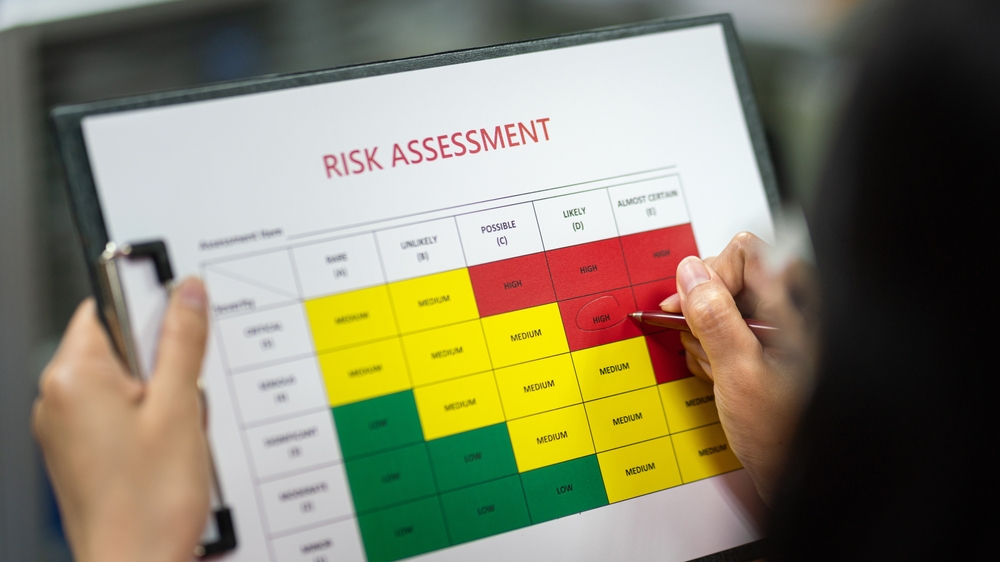
Have you ever wondered where your breast cancer risk falls? Are you at a higher or lower risk? Should you be getting screened sooner? There is a straightforward way to answer these questions. The American College of Radiology recommends that all females have a formal breast cancer risk assessment performed by the age of 25.
This evaluation is done to better understand a female’s risk for breast cancer, which factors are impacting their risk the most, and to see if they may benefit from getting mammogramsA low dose x-ray picture of the breast that allows a doctor to view glandular tissue and determine the presence of cancer. or breast MRIs (Magnetic Resonance Imaging) earlier than age 40, which is the recommendation for females of average risk. This is particularly important for Black and Ashkenazi Jewish females because they tend to get diagnosed at younger ages and therefore may benefit from earlier screening.
Currently in the United States there is no standardized practice for how these appraisals get conducted, which leads to many females being unaware of when their doctor does this or if it happened at all. Your primary care physician or OB/GYN can follow many different models of risk assessment by asking their patient about a variety of factors. These questions can include:
- When did you get your first period?
- Have any of your relatives been diagnosed with breast or ovarian cancer?
- Which, if any, geneticInherited characteristics. mutations run in your family?
- What are your drinking habits like?
- Do you smoke or vape?
- Have you ever been pregnant, and did you carry to term?
- Are you on birth control, if so what kind?
These can easily seem like innocuous questions asked during a well visit, but they can be part of a risk assessment for breast cancer and other diseases as well. We promote honesty when answering any and all of a clinician’s questions because your answers can shed light on potential health risks that your healthcare providers need to be aware of. There are online tools you can utilize that give you a better idea of what types of factors your doctor is assessing and can give you an estimate of your risk for breast cancer. Cedars Sinai and National Cancer Institute tools can offer some insight but are never meant to replace the evaluation from your doctor. If you are concerned about your breast cancer risk, you can always start a conversation with your doctor by asking if they have ever conducted a formal risk assessment and what your breast cancer risk may be.